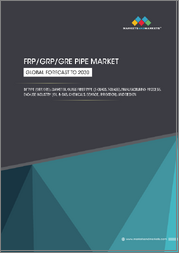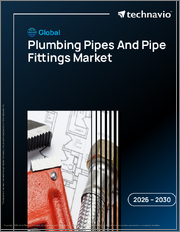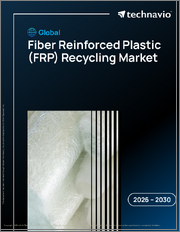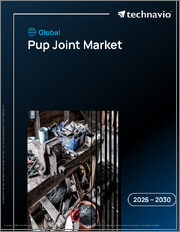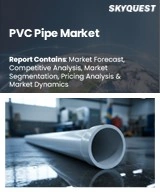
|
시장보고서
상품코드
1700161
스프링 부착 파이프 서포트 시장 : 제품 유형, 재료, 용도, 최종 사용자, 지역별 분석 및 예측(-2032년)Pipe Support with Spring Market Forecasts to 2032 - Global Analysis By Product Type, Material, Application, End User and By Geography |
||||||
Stratistics MRC에 따르면 세계의 스프링 부착 파이프 서포트 시장은 2025년에 5억 3,970만 달러를 차지하고 예측 기간 동안 CAGR 7.9%를 나타내 2032년에는 8억 4,280만 달러에 이를 것으로 전망됩니다.
스프링 부착 파이프 서포트는 온도 변동, 팽창 및 수축으로 인한 파이프라인의 수직 변위를 관리하기 위해 설계된 중요한 기계장치입니다. 발전, 석유 및 가스, 화학처리 등의 산업에서 일반적으로 볼 수 있는 스프링 부착 파이프 서포트는 파이프라인의 내구성과 안전성을 향상시키는 데 중요한 역할을 하고 있습니다.
에너지 정보국에 따르면 미국의 천연가스 파이프라인 네트워크는 미국 본토 전역으로 천연가스를 운송하는 고도로 통합된 네트워크입니다.
모듈식 건설 솔루션에 대한 수요 증가
3D 프린팅에 의한 커스텀 서포트의 채용이 증가하고 있어 컴팩트한 산업 공간에 있어서의 복잡한 배관 레이아웃에 대응하고 있습니다. 석유 및 가스 분야에서도, 오프쇼어 플랫폼이나 원격지의 파이프라인용으로 모듈러 설계를 우선해, 물류의 과제를 최소한으로 억제하고 있습니다. 또한, 제약 업계나 반도체 업계의 성장에 의해 클린 룸 환경에서의 내오염성 서포트 수요가 높아져, 시장의 성장을 뒷받침하고 있습니다.
기존 배관 시스템 개조의 과제
오래된 시스템을 최신 스프링 서포트로 개조하는 경우, 내하 중요건을 충족시키기 위해 비용이 많이 드는 구조 변경이 필요하게 되는 경우가 많습니다. 업그레이 드 중 가동 중지 시간은 발전 및 수처리와 같은 중요한 부문의 운영을 중단합니다.
스프링 서포트 시스템의 기술적 진보
IoT 대응의 하중 센서나 자동 조정 스프링 기구 등의 기술 혁신은 파이프라인의 열팽창이나 진동을 관리하는 정밀도를 높입니다. 난스 비용을 줄여 예측 분석을 통합하여 스트레스 포인트를 실시간으로 모니터링하고 시스템 고장을 방지합니다.
고응력 환경에서 발생할 수 있는 고장
고압 시스템(예 : 증기 파이프라인)의 과부하는 스프링의 피로를 유발하여 파열이나 안전 위험을 초래할 수 있습니다. 수축하고 빈번한 교환이 필요합니다. 대량 생산되는 스프링의 일관성없는 품질 관리는 제조업체의 책임 위험을 증가시킵니다. 산업 사고로 인한 소송 비용은 소규모 공급업체의 수익성을 압박합니다.
COVID-19의 영향 :
팬데믹에 의해 원재료공급이 멈추고, 스프링 서포트의 생산이 늦어, 코스트가 급등했습니다. 락 다운은 에너지와 제조업의 건설을 정지시켜, 단기적인 수요를 감소시켰습니다. 팬데믹 후, 장래의 리스크를 경감하기 위해서 공급 체인의 다양화나 원격 감시 툴의 보급이 진행되었습니다.
예측 기간 동안 가변 스프링 서포트 분야가 최대화될 전망
가변 스프링 서포트 분야는 부하 조건이 변화해도 일정한 서포트를 제공하는 능력에 의해 동적인 운용 스트레스 하에서도 파이프라인의 무결성을 확보할 수 있기 때문에 예측 기간 중 최대 시장 점유율을 차지할 것으로 예상됩니다. 이 제품이 효과적으로 작동하지 않을 수 있는 수직 및 횡방향 움직임을 수반하는 용도에 특히 유용합니다.
탄소강 부문은 예측기간 중 가장 높은 CAGR이 예상됩니다.
예측 기간 동안 탄소강 부문은 내구성, 합리적인 가격 및 범용성으로 인해 가장 높은 성장률을 보일 것으로 예상됩니다. 도 변동과 부식 환경을 견딜 수 있는 능력은 석유화학 플랜트에서 발전 시설에 이르기까지 다양한 용도에 대한 적합성을 더욱 높여줍니다.
최대 공유 지역 :
예측 기간 동안 아시아태평양은 중국과 인도의 급속한 산업화, 도시화 및 에너지 부문에 대한 투자로 최대 시장 점유율을 차지할 것으로 예상됩니다. "와 같은 정부 이니셔티브는 견고한 배관 인프라를 우선시하고 있습니다. 한국과 일본에서는 석유화학 콤비나트와 원자력발전소의 성장이 수요를 밀어 올리고 있습니다.
CAGR이 가장 높은 지역 :
예측 기간 동안 북미는 에너지, 규제, 인프라 요인이 중첩되어 가장 높은 CAGR을 나타낼 것으로 예측됩니다. 배출 및 운송을 위한 견고한 배관 시스템이 요구되고 있습니다.
무료 사용자 지정 오퍼링 :
이 보고서를 구독하는 고객은 다음 무료 맞춤설정 옵션 중 하나를 사용할 수 있습니다.
- 기업 프로파일
- 추가 시장 기업의 종합적 프로파일링(3개사까지)
- 주요 기업의 SWOT 분석(3개사까지)
- 지역 세분화
- 고객의 관심에 응한 주요국 시장 추계·예측·CAGR(주 : 타당성 확인에 따름)
- 경쟁 벤치마킹
- 제품 포트폴리오, 지리적 존재, 전략적 제휴에 기반한 주요 기업 벤치마킹
목차
제1장 주요 요약
제2장 서문
- 개요
- 이해관계자
- 조사 범위
- 조사 방법
- 데이터 마이닝
- 데이터 분석
- 데이터 검증
- 조사 접근
- 조사 자료
- 1차 조사 자료
- 2차 조사 정보원
- 전제조건
제3장 시장 동향 분석
- 성장 촉진요인
- 성장 억제요인
- 기회
- 위협
- 제품분석
- 용도 분석
- 최종 사용자 분석
- 신흥 시장
- COVID-19의 영향
제4장 Porter's Five Forces 분석
- 공급기업의 협상력
- 구매자의 협상력
- 대체품의 위협
- 신규 참가업체의 위협
- 경쟁 기업간 경쟁 관계
제5장 세계의 스프링 부착 파이프 서포트 시장 : 제품 유형별
- 가변 스프링 서포트
- 고정 스프링 서포트
- 코일 스프링 서포트
- 맞춤형 스프링 서포트
- 기타 제품 유형
제6장 세계의 스프링 부착 파이프 서포트 시장 : 재료별
- 탄소강
- 스테인레스 스틸
- 비금속
- 아연 도금 강철
- 기타 재료
제7장 세계의 스프링 부착 파이프 서포트 시장 : 용도별
- 발전소
- 열팽창 관리
- 진동 제어
- 하중 베어링 및 구조 서포트
- 부식 및 환경 저항
- 개조 및 유지 보수
- 기타 용도
제8장 세계의 스프링 부착 파이프 서포트 시장 : 최종 사용자별
- 산업
- 상업
- 주거
- 석유 및 가스 산업
- 물 및 폐수 처리
- 기타 최종 사용자
제9장 세계의 스프링 부착 파이프 서포트 시장 : 지역별
- 북미
- 미국
- 캐나다
- 멕시코
- 유럽
- 독일
- 영국
- 이탈리아
- 프랑스
- 스페인
- 기타 유럽
- 아시아태평양
- 일본
- 중국
- 인도
- 호주
- 뉴질랜드
- 한국
- 기타 아시아태평양
- 남미
- 아르헨티나
- 브라질
- 칠레
- 기타 남미
- 중동 및 아프리카
- 사우디아라비아
- 아랍에미리트(UAE)
- 카타르
- 남아프리카
- 기타 중동 및 아프리카
제10장 주요 발전
- 계약, 파트너십, 협업, 합작투자
- 인수와 합병
- 신제품 발매
- 사업 확대
- 기타 주요 전략
제11장 기업 프로파일링
- Witzenmann
- Unison HKR
- Unified Alloy
- Steinar H Sunde AS
- Rilco
- Quality Pipe Supports
- Piping Technology & Products Inc.
- PHD Manufacturing Inc.
- National Pipe Hanger Corporation
- 정우Industrial Machine
- Hesterberg GmbH & Co. KG
- Carpenter and Paterson Asia Ltd.
- Binder Group
- Bergen Pipe Supports
According to Stratistics MRC, the Global Pipe Support with Spring Market is accounted for $539.7 million in 2025 and is expected to reach $842.8 million by 2032 growing at a CAGR of 7.9% during the forecast period. Pipe Support with Spring is a crucial mechanical device designed to manage the vertical displacement of pipelines caused by temperature fluctuations, expansion, and contraction. These supports utilize constant or variable force springs to stabilize piping structures and minimize mechanical stress in various industrial applications. Commonly found in industries such as power generation, oil & gas, and chemical processing, spring pipe supports play a vital role in enhancing pipeline durability and safety. They help control vibrations, absorb shocks, and maintain proper alignment, ensuring seamless operation under high-pressure conditions.
According to the Energy Information Administration, the U.S. natural gas pipeline network is a highly integrated network that transports natural gas across the continental U.S.
Market Dynamics:
Driver:
Rising demand for modular construction solutions
Growing adoption of 3D-printed custom supports addresses complex piping layouts in compact industrial spaces. Modular assembly techniques enable prefabricated spring support systems, reducing on-site labor and accelerating project timelines. The oil & gas sector also prioritizes modular designs for offshore platforms and remote pipelines to minimize logistical challenges. Moreover, growth in pharmaceutical and semiconductor industries drives demand for contamination-resistant supports in clean room environments boosting the market growth.
Restraint:
Challenges in retrofitting existing piping systems
Retrofitting older systems with modern spring supports often requires costly structural modifications to accommodate load-bearing requirements. Compatibility issues between legacy piping materials (e.g., cast iron) and new supports risk corrosion or misalignment. Downtime during upgrades disrupts operations in critical sectors like power generation and water treatment. Limited access to confined industrial spaces complicates installation, increasing labor expenses hampering the market growth.
Opportunity:
Technological advancements in spring support systems
Innovations such as IoT-enabled load sensors and self-adjusting spring mechanisms enhance precision in managing thermal expansion and vibration in pipelines. Advanced materials like high-strength alloys improve durability in extreme temperatures, reducing maintenance costs for oil & gas and chemical industries. Integration of predictive analytics allows real-time monitoring of stress points, preventing system failures. Automated spring calibration tools streamline installation, boosting efficiency in large-scale projects.
Threat:
Potential failures in high-stress environments
Overloading in high-pressure systems (e.g., steam pipelines) can cause spring fatigue, leading to catastrophic ruptures and safety hazards. Corrosion in coastal or chemical-exposed environments shortens support lifespan, necessitating frequent replacements. Inconsistent quality control in mass-produced springs increases liability risks for manufacturers. Litigation costs from industrial accidents strain profitability for small-scale suppliers.
Covid-19 Impact:
The pandemic disrupted raw material supplies, delaying spring support production and inflating costs. Lockdowns halted construction in energy and manufacturing sectors, reducing short-term demand. Conversely, pharmaceutical and HVAC industries saw increased orders for piping systems to support vaccine production and air-quality upgrades. Post-pandemic, supply chain diversification and remote monitoring tools gained traction to mitigate future risks. Recovery in oil prices and renewable energy projects revived long-term market optimism.
The variable spring supports segment is expected to be the largest during the forecast period
The variable spring supports segment is expected to account for the largest market share during the forecast period owing to their ability to provide constant support despite varying load conditions ensures pipeline integrity under dynamic operational stresses. These supports are particularly useful in applications involving vertical or lateral movement, where fixed supports might fail to perform effectively. Their customization options, catering to specific load requirements, add to their appeal across diverse industries such as power generation, petrochemicals, and refineries, boosting market demand.
The carbon steel segment is expected to have the highest CAGR during the forecast period
Over the forecast period, the carbon steel segment is predicted to witness the highest growth rate due to its durability, affordability, and versatility. Renowned for its strength, carbon steel ensures reliable load-bearing capacity and resilience under high-pressure conditions, making it ideal for supporting heavy industrial pipelines. Its ability to withstand temperature fluctuations and corrosive environments further enhances its suitability in varied applications, from petrochemical plants to power generation facilities. Additionally, the widespread availability and cost-effectiveness of carbon steel contribute to reducing manufacturing expenses, fostering broader adoption in the pipe support industry.
Region with largest share:
During the forecast period, the Asia Pacific region is expected to hold the largest market share due to rapid industrialization, urbanization, and energy sector investments in China and India. Government initiatives like India's "Smart Cities Mission" prioritize robust piping infrastructure. Growth in petrochemical complexes and nuclear power plants in South Korea and Japan boosts demand. Low labor costs attract manufacturing hubs, requiring extensive piping networks.
Region with highest CAGR:
Over the forecast period, the North America region is anticipated to exhibit the highest CAGR driven by a confluence of energy, regulatory, and infrastructural factors. The U.S. leads this growth, fuelled by extensive shale gas exploration activities, particularly in the Permian Basin and Marcellus Shale regions, which demand robust piping systems for extraction and transportation. Collaborative R&D between manufacturers and energy firms, alongside government-backed infrastructure modernization programs, positions North America as a hub for cutting-edge pipe support solutions.
Key players in the market
Some of the key players in Pipe Support with Spring Market include Witzenmann, Unison HKR, Unified Alloy, Steinar H Sunde AS, Sanwa Tekki Corporation, Rilco, Quality Pipe Supports, Piping Technology & Products Inc., PHD Manufacturing Inc., National Pipe Hanger Corporation, JeongwooIndustrial Machine, Hesterberg GmbH & Co. KG, Carpenter and Paterson Asia Ltd., Binder Group and Bergen Pipe Supports.
Key Developments:
In December 2024, Clearco, and Boundless, a capital marketplace for high-growth businesses, announced a technology integration that builds upon their existing partnership to transform access to working capital for ecommerce brands.
In February 2024, PT&P launched a new range of engineered spring supports, including constant and variable spring supports, designed to accommodate thermal expansion and contraction in piping systems. These products offer customizable solutions, enhancing flexibility and operational reliability across industrial applications hangers are engineered to manage load variations efficiently.
In January 2024, Witzenmann GmbH introduced HYDRA(R) spring hangers and supports, featuring linearly variable bearing behavior and low friction. These characteristics minimize deviation from theoretical load values, ensuring greater precision and safety in piping infrastructure.
Product Types Covered:
- Variable Spring Supports
- Constant Spring Supports
- Coil Spring Supports
- Customized Spring Supports
- Other Product Types
Materials Covered:
- Carbon Steel
- Stainless Steel
- Non-Metallic
- Galvanized Steel
- Other Materials
Applications Covered:
- Power Plants
- Thermal Expansion Management
- Vibration Control
- Load Bearing & Structural Support
- Corrosion & Environmental Resistance
- Retrofit & Maintenance
- Other Applications
End Users Covered:
- Industrial
- Commercial
- Residential
- Oil & Gas Industry
- Water & Wastewater Treatment
- Other End Users
Regions Covered:
- North America
- US
- Canada
- Mexico
- Europe
- Germany
- UK
- Italy
- France
- Spain
- Rest of Europe
- Asia Pacific
- Japan
- China
- India
- Australia
- New Zealand
- South Korea
- Rest of Asia Pacific
- South America
- Argentina
- Brazil
- Chile
- Rest of South America
- Middle East & Africa
- Saudi Arabia
- UAE
- Qatar
- South Africa
- Rest of Middle East & Africa
What our report offers:
- Market share assessments for the regional and country-level segments
- Strategic recommendations for the new entrants
- Covers Market data for the years 2024, 2025, 2026, 2028, and 2032
- Market Trends (Drivers, Constraints, Opportunities, Threats, Challenges, Investment Opportunities, and recommendations)
- Strategic recommendations in key business segments based on the market estimations
- Competitive landscaping mapping the key common trends
- Company profiling with detailed strategies, financials, and recent developments
- Supply chain trends mapping the latest technological advancements
Free Customization Offerings:
All the customers of this report will be entitled to receive one of the following free customization options:
- Company Profiling
- Comprehensive profiling of additional market players (up to 3)
- SWOT Analysis of key players (up to 3)
- Regional Segmentation
- Market estimations, Forecasts and CAGR of any prominent country as per the client's interest (Note: Depends on feasibility check)
- Competitive Benchmarking
- Benchmarking of key players based on product portfolio, geographical presence, and strategic alliances
Table of Contents
1 Executive Summary
2 Preface
- 2.1 Abstract
- 2.2 Stake Holders
- 2.3 Research Scope
- 2.4 Research Methodology
- 2.4.1 Data Mining
- 2.4.2 Data Analysis
- 2.4.3 Data Validation
- 2.4.4 Research Approach
- 2.5 Research Sources
- 2.5.1 Primary Research Sources
- 2.5.2 Secondary Research Sources
- 2.5.3 Assumptions
3 Market Trend Analysis
- 3.1 Introduction
- 3.2 Drivers
- 3.3 Restraints
- 3.4 Opportunities
- 3.5 Threats
- 3.6 Product Analysis
- 3.7 Application Analysis
- 3.8 End User Analysis
- 3.9 Emerging Markets
- 3.10 Impact of Covid-19
4 Porters Five Force Analysis
- 4.1 Bargaining power of suppliers
- 4.2 Bargaining power of buyers
- 4.3 Threat of substitutes
- 4.4 Threat of new entrants
- 4.5 Competitive rivalry
5 Global Pipe Support with Spring Market, By Product Type
- 5.1 Introduction
- 5.2 Variable Spring Supports
- 5.3 Constant Spring Supports
- 5.4 Coil Spring Supports
- 5.5 Customized Spring Supports
- 5.6 Other Product Types
6 Global Pipe Support with Spring Market, By Material
- 6.1 Introduction
- 6.2 Carbon Steel
- 6.3 Stainless Steel
- 6.4 Non-Metallic
- 6.5 Galvanized Steel
- 6.6 Other Materials
7 Global Pipe Support with Spring Market, By Application
- 7.1 Introduction
- 7.2 Power Plants
- 7.3 Thermal Expansion Management
- 7.4 Vibration Control
- 7.5 Load Bearing & Structural Support
- 7.6 Corrosion & Environmental Resistance
- 7.7 Retrofit & Maintenance
- 7.8 Other Applications
8 Global Pipe Support with Spring Market, By End User
- 8.1 Introduction
- 8.2 Industrial
- 8.3 Commercial
- 8.4 Residential
- 8.5 Oil & Gas Industry
- 8.6 Water & Wastewater Treatment
- 8.7 Other End Users
9 Global Pipe Support with Spring Market, By Geography
- 9.1 Introduction
- 9.2 North America
- 9.2.1 US
- 9.2.2 Canada
- 9.2.3 Mexico
- 9.3 Europe
- 9.3.1 Germany
- 9.3.2 UK
- 9.3.3 Italy
- 9.3.4 France
- 9.3.5 Spain
- 9.3.6 Rest of Europe
- 9.4 Asia Pacific
- 9.4.1 Japan
- 9.4.2 China
- 9.4.3 India
- 9.4.4 Australia
- 9.4.5 New Zealand
- 9.4.6 South Korea
- 9.4.7 Rest of Asia Pacific
- 9.5 South America
- 9.5.1 Argentina
- 9.5.2 Brazil
- 9.5.3 Chile
- 9.5.4 Rest of South America
- 9.6 Middle East & Africa
- 9.6.1 Saudi Arabia
- 9.6.2 UAE
- 9.6.3 Qatar
- 9.6.4 South Africa
- 9.6.5 Rest of Middle East & Africa
10 Key Developments
- 10.1 Agreements, Partnerships, Collaborations and Joint Ventures
- 10.2 Acquisitions & Mergers
- 10.3 New Product Launch
- 10.4 Expansions
- 10.5 Other Key Strategies
11 Company Profiling
- 11.1 Witzenmann
- 11.2 Unison HKR
- 11.3 Unified Alloy
- 11.4 Steinar H Sunde AS
- 11.5 Rilco
- 11.6 Quality Pipe Supports
- 11.7 Piping Technology & Products Inc.
- 11.8 PHD Manufacturing Inc.
- 11.9 National Pipe Hanger Corporation
- 11.10 JeongwooIndustrial Machine
- 11.11 Hesterberg GmbH & Co. KG
- 11.12 Carpenter and Paterson Asia Ltd.
- 11.13 Binder Group
- 11.14 Bergen Pipe Supports







